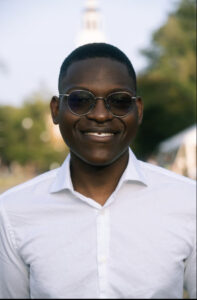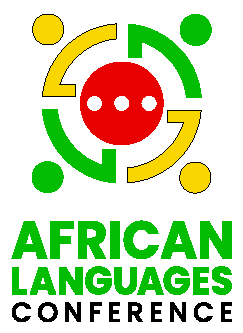 Using Technology to Preserve the Adjagbe Language
Using Technology to Preserve the Adjagbe Language
Josué Godeme, from Cotonou, Benin Republic, is an African language activist using technology to create resources for the Adjagbe language spoken in the Mono and Couffo regions of Benin.
Adjagbe, which translates to “the Adja language.” is spoken by the Adja People. The language is spoken by around a million people in Benin, and it’s part of the Gbe language family, along with languages like Ewe and Fongbe. In this series to showcase the work of African language activists, Josue shares with us his journey of documenting the Adja Language.
What inspired you to become a language activist, and what drives your passion for preserving and documenting the Adja language?
“My journey into language activism started with a personal realization. Despite Adjagbe being my native language, I grew up speaking French. Like many parents, mine believed that focusing on French would help me academically. It’s a common misconception – studies have shown that knowing multiple languages is beneficial, not detrimental to learning.
When I got to college, I tried to reconnect with Adjagbe. I can understand it a bit, but speaking is a challenge. During my attempts to learn, I made a startling discovery – there was virtually nothing about Adjagbe online. No learning resources, no translation support, no educational materials. This realization led me down the rabbit hole of under-resourced languages and language preservation.
I set myself a goal: to increase Adjagbe’s online presence and build resources to support the language, like translators and educational content. This mission became my driving force. It’s about ensuring that future generations have access to their linguistic heritage.”
Can you explain your current project(s) and their potential impact?
“My current project, which I’m incredibly excited about, was made possible by a grant from the Davis Project for Peace at Middlebury through the Dickey Center at Dartmouth College. The project focuses on creating digital resources for Adjagbe, including a corpus of translated sentences, video interviews, and folktales. We’re also laying the groundwork for a translation tool and a comprehensive dictionary.
I spent the summer back home in Benin, fully immersed in this work. The impact of this project goes beyond just the tangible outputs. We’re initiating a movement towards greater recognition and preservation of the Adja language. The project has solidified my commitment to language preservation and cultural heritage work. It’s shown me the complex interplay between globalization and local language preservation.
Looking ahead, I’m excited to continue this work, expanding our efforts to create more comprehensive resources for Adja speakers and potentially applying this model to other underrepresented languages. This summer project is just the beginning of what I hope will be a lifelong commitment to preserving and celebrating linguistic diversity.”
Can you share a success story or a challenging experience in your language preservation efforts?
“One of our biggest successes has been creating the first-ever large-scale digital resource for the Adja language. We compiled and translated over 1,500 sentences, establishing a parallel sentence corpus (translation still ongoing). This is a huge step forward for Adjagbe in the digital world.
We’ve also made significant progress in documenting the language and culture. We’ve conducted and filmed interviews with diverse community members, capturing their thoughts on the importance of the Adja language and its cultural significance. Additionally, we’ve documented traditional folktales, preserving these important cultural narratives for future generations. Another exciting development is that we are working on developing a dictionary and learning curriculum for Adjagbe, further expanding our resources.
We’ve also started laying the groundwork for a translation tool, which could be a game-changer for Adjagbe speakers and learners.
You can check out our work on the project website: www.preserveourlanguages.org Full disclosure – the website isn’t finished yet (haha), but it gives a good overview of what we’re working on. We are going to be posting on YouTube, Instagram, Facebook etc. You will find all those links on the website.”
What role do you think languages play in African identity and culture?
“Languages play a crucial role in African identity and culture. They’re not just means of communication; they’re carriers of our history, our traditions, and our worldviews. Each language encapsulates unique ways of perceiving and interacting with the world.
In the African context, our languages are intrinsically linked to our diverse cultures. They reflect the richness of our continent’s heritage, from our oral traditions and proverbs to our social norms and values. Our languages are the vessels through which we pass down knowledge from one generation to the next (Africa is known to have had an oral tradition through the years).
Moreover, our languages are key to maintaining our cultural diversity in the face of globalization. They provide us with a sense of belonging and community identity. When we speak our native languages, we’re not just communicating; we’re affirming our cultural roots and celebrating our unique place in the world.
However, it’s important to note that the role of language in African identity is complex and evolving. With the influence of colonial languages and the pressures of globalization, many Africans, like myself, have complicated relationships with their native languages. This complexity is part of our modern African identity – navigating between our indigenous languages and global languages, between tradition and modernity.”
What do you think is the most significant challenge facing African languages today?
“The most significant challenge facing African languages today is, in my opinion, utility – or rather, the perceived lack of it. This might sound harsh, but for many people nowadays, our native languages seem to have “no utility.” In our globalized world, some languages tend to dominate (English being one of them, if not the biggest), not necessarily because they have the most speakers, but because of their perceived utility.
English, for instance, is often dubbed the language of business or international trade. People want to learn English because it can be useful to them professionally and personally. On the other hand, why would someone learn Adjagbe? For me, it’s about reconnecting with my language on a deeper level, but let’s be honest, that’s not what’s going to motivate a lot of people to learn or cherish their languages.
To address this, we need to give our languages utility. It starts with education. In Benin, for example, native languages aren’t even taught in school, nor is any class taught in a native language. Looking at that, how and why would a child cherish their language? We need to start putting our languages at the forefront of our education.
Some argue that there are too many languages in one country to choose from for education. But African countries aren’t the only ones in the world with multiple languages cohabiting. Many Asian countries, for instance, have successfully built systems to handle linguistic diversity. Even on the continent, some countries like Tanzania are building systems that allow them to have their native languages in the education system.
My point here is that if we don’t give utility to our languages, they will likely disappear. But I want to be clear: we shouldn’t get rid of French or English. They are now, whether we like it or not, part of us, part of our history. What we should do is elevate our languages to the same level we do for English and French.
In Benin, local languages are spoken everywhere in the city and at home, but they’re absent from the education system and government communications. Languages can’t thrive like that. We need to create environments where our native languages have practical, everyday uses beyond just informal communication.
This challenge of utility is what drove me to found AKILLI, an AI startup aimed at solving critical problems in emerging countries using technology. We’re focusing on three main areas: Translation (building tools that work for our native languages), Education (improving education access in Africa, which includes providing resources in native languages), and Health. You can check out more about AKILLI at https://www.akilli.ai.”
How can we support and amplify the work of African language activists and technologists?
“Here are some ways we can do this:
- Raise awareness: Share information about the importance of language preservation and the work being done by activists and technologists. Use social media, blogs, and other platforms to spread the word.
- Collaborate: Encourage collaboration between language activists, technologists, and institutions. This could involve partnering with universities, tech companies, or NGOs to create more resources and tools for African languages.
- Funding: Support initiatives that provide funding for language preservation projects. This could be through donations, grants, or crowdfunding campaigns.
- Education: Advocate for the inclusion of African languages in education systems. Support programs that teach coding and technology skills in local languages. (I am really huge on this. Education is the bedrock for change)
- Technology adoption: Use and promote technology tools developed for African languages. This could include translation apps, language learning software, or social media platforms that support African languages.
- Research: Support and participate in research efforts aimed at understanding and preserving African languages.
- Business support: For those in business, consider how you can incorporate African languages into your products or services, creating more utility for these languages in the marketplace.
By taking these steps, we can create a more supportive environment for African language activists and technologists, helping to ensure the preservation and growth of Africa’s rich linguistic heritage in the digital age.
If you’re interested in supporting our work specifically, follow our PreserveOurLanguages social media account www.preserveourlanguages.org to stay updated. And keep an eye on AKILLI – we’ve got some big things coming up in the education space!”

